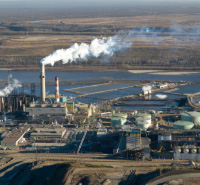OK, yesterday was a feel good day. Maybe a feel good weekend, but now back to the environmental disasters. This latest oil spill in Nigeria is not like the one in the Gulf of Mexico or the Exxon Valdez in Alaska. Still it was from a fixed well to a fixed vessel. This is ineptitude of huge proportions. It is in a country that has a history of destroying the environment and its own people. On the day when the Pope preaches against violence, they blow up a Catholic Church. Nice.
http://www.advisorone.com/2011/12/26/bombs-oil-spill-shake-nigeria
Bombs, Oil Spill Shake Nigeria
Offshore leak stems from flexible export line to tanker
Nigeria was hit with a double whammy over the past few days: first an oil spill that could develop into its worst since January of 1998, and then a series of Christmas Day bombings that escalated the strife in the oil-rich country.
Production on the deepwater oil project was shut down as Royal Dutch Shell worked to contain the spill, which it said resulted from a leak in the flexible line between a tanker and the production facility.
Thus far neither disaster has had much effect on the price of oil, but with many markets closed, in the U.S. and U.K. for the Christmas and Boxing Day holidays, that could change on Tuesday. Prices were up a bit in Asian markets over supply concerns.
Bloomberg reported that the spill, which began last week, originated at the Bonga deepwater project, which produces 200,000 barrels a day. Production was shut down before the leak reached 40,000 barrels, Shell said in the report. Mutiu Sunmonu, Shell’s chairman for Nigeria, said in a statement last week, “The sheen has thinned considerably due to a combination of natural factors and dispersant application, and in places is breaking up, all of which should aid further dissipation.”
Bonga is the first deepwater discovery of oil for Nigeria, and it produces nearly 10% of the nation’s crude oil. It is located approximately 75 miles off the Nigerian coast. Nigeria is the fifth largest supplier of oil to the U.S., having provided 826,000 barrels from the beginning of this year through September, the latest month for which figures are available from the U.S. Energy Administration.
Five ships were deployed by Shell to spray dispersants; the company also brought in experts to combat the spill, which could be the worst since an Exxon Mobil Corp. spill in January of 1998 lost approximately 40,000 barrels from the Idoho platform on the southeastern coast of the country. At that time, oil slicks were reported as far west as Lagos.
:}
Go there and read. More tomorrow.
:}







